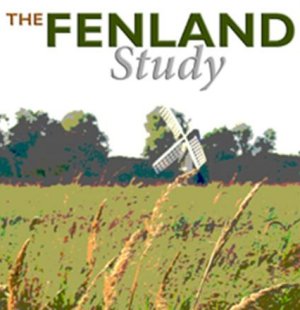 Regular readers will know that I was recruited via my GP to take part in the Fenland Study. The study is taking a sample of the population born between 1950 and 1975, and carrying out a raft of blood tests, body stature measurements, DEXA body fat and bone density and tests for diabetes, cholesterol, liver and kidney function etc.
Regular readers will know that I was recruited via my GP to take part in the Fenland Study. The study is taking a sample of the population born between 1950 and 1975, and carrying out a raft of blood tests, body stature measurements, DEXA body fat and bone density and tests for diabetes, cholesterol, liver and kidney function etc.
I had a callback from my GP to discuss the blood results. Two liver enzymes were slightly raised and my total cholesterol is above what she would like to see (although still in the green zone for my personal risk of cardiovascular disease, thankfully). Of course, I’ve spent the last two days worrying that those enzyme spikes were going to tell me I had something seriously hepatically amiss.
My GP reassured me that none of the medication I take could be to blame but rather generous she suggests that a couple of days of birthday celebrations the week before the blood tests could have raised the enzymes in question: GGT (gamma-glutamyl transpeptidase,) and ALT (alanine transaminase). The latter was only marginally raised and she was not concerned with that. The former, is the classic biomarker for alcohol use. I admit there had been some the week before, and in denial mode I suggest that the spike was down to that week’s celebrations and not being a Geordie journalist (two synergistic aspects of my heritage determined to make me keen on the effects of EtOH).
Nevertheless, it’s what they usually refer to as a “wake-up call”. Another good reason to take part in the study if you are given the opportunity – better informed than ignorant when it comes to one’s health.
The spike wasn’t so high as to be a major concern and was certainly not indicative of any liver damage, but it is a spike, nevertheless. My GP reassured me that reducing the weekly intake of said EtOH should be enough to bring the GGT level back into the normal range within a week or two and that there’s no reason I should deny my heritage. The liver, she says, can regenerate itself very well given the opportunity regardless of whether one is a Geordie or a journalist, all that is required is to reduce, or better still, remove the toxins one has a wont to ingest and it can carry out all its marvellous metabolic processes unhindered.
Then there was mention of eating more fruit. Wake-up call or not that’s a suggestion too far for most Geordies and a lot of journalists too…
I should get the other data from the Fenland Study team soon and will outline my metrics in a little detail and the health advice they offer in Part 2.